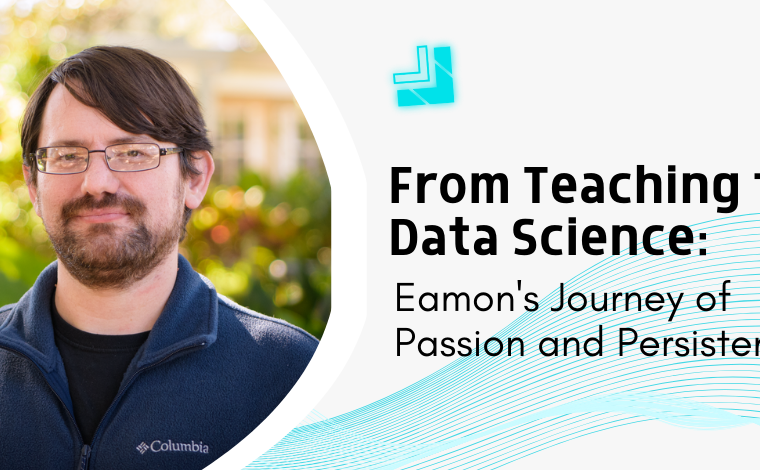The Ultimate Guide to Hiring a Data Science Consultant

Stay Informed With Our Weekly Newsletter
Receive crucial updates on the ever-evolving landscape of technology and innovation.
In today’s data-driven world, organisations are increasingly turning to data science consultants to help them unlock the power of their data.
While 59.5% of business leaders indicate that their companies utilise data analytics for driving business innovation, merely 2 in 5 companies are actively engaging in competitive data analytics practices and effectively managing data as a valuable asset.
So whether you are a small business looking to make better data-driven decisions or a large corporation needing advanced predictive analytics, hiring a data science consultant can be a game-changer for your organisation.
In this guide, we walk you through the process of hiring a data science consultant, from understanding their role to finding the right fit for your organisation.
Understanding the role of a data science consultant

Before you start the hiring process, it is important to have a clear understanding of what a data science consultant does.
Key responsibilities of a data science consultant
A data science consultant brings a range of skills and expertise to the table. Their responsibilities typically include:
- Conducting data analysis and modelling to uncover patterns and correlations within the data;
- Building predictive models to forecast business trends and outcomes;
- Developing and implementing data-driven strategies to optimise business processes;
- Collaborating with cross-functional teams to identify and prioritise data science projects;
- Communicating complex data insights to non-technical stakeholders.
By tapping into their expertise, you can empower your organisation to make data-driven decisions that lead to a competitive advantage.
The importance of data science in business
As businesses increasingly rely on data to drive decision-making, having a data science consultant on board is essential.
Data science can provide valuable insights that enable businesses to make better-informed decisions, increase efficiency, and improve customer satisfaction.
Identifying your data science needs
Before you start searching for a data science consultant, it is crucial to identify your organisation’s specific data science needs. This will help you narrow down your search and find a consultant with the right skills and expertise.
Assessing your current data capabilities
Start by assessing your organisation’s current data capabilities.
What data do you have, and how is it currently being utilised?
Are there any gaps or limitations in your data infrastructure?
Understanding your data landscape will help you determine the type of data science expertise you need.
Defining your data objectives
Next, define your data objectives. What business problems do you want to solve using data science?
Are you looking to improve your marketing campaigns, optimise your supply chain, or enhance your customer experience?
By clarifying your objectives, you can find a data science consultant who has experience in your specific industry and understands your unique challenges.
Finding the right data science consultant

Now that you have a clear understanding of your data science needs, it’s time to find the right consultant. Here are a few steps to guide you in your search:
Where to look for a data science consultant
There are several avenues you can explore to find a data science consultant:
- Professional networks: Reach out to your professional network and ask for recommendations. Attend industry events and connect with experts in the field.
- Online platforms: Explore online platforms like LinkedIn, Upwork, or Kaggle, where data science consultants showcase their skills and expertise.
- Data science communities: Join data science communities, such as Kaggle or Data Science Society, where you can connect with experienced consultants.
Essential skills and qualifications to look for
When evaluating potential candidates, consider the following skills and qualifications:
- Technical expertise: Look for consultants with a strong foundation in statistical analysis, machine learning, and programming languages like Python or R.
- Industry experience: Consider consultants who have worked in your industry or have experience solving similar business problems.
- Communication skills: Data science consultants need to effectively communicate complex concepts to non-technical stakeholders. Look for candidates with strong communication skills.
- Problem-solving abilities: Assess a candidate’s problem-solving abilities through case studies or real-world examples.
By carefully evaluating these skills and qualifications, you can make an informed decision and find the right fit for your organisation.
The hiring process
Once you have identified potential candidates, it’s time to move on to the hiring process. Here are some essential steps to consider:
Conducting an effective interview
An interview allows you to assess a candidate’s skills, experience, and cultural fit.
Prepare a set of relevant questions that test their technical knowledge and problem-solving abilities.
Additionally, consider conducting a practical exercise or asking for references to further evaluate candidates.
Evaluating technical skills and experience
Technical skills and experience are crucial for a data science consultant.
Consider asking candidates to showcase their previous projects or provide sample code to evaluate their abilities.
Moreover, take the time to critically assess their technical expertise to ensure they can deliver the results you expect.
Onboarding your data science consultant

Congratulations, you have successfully hired a data science consultant!
Now, it’s time to onboard them effectively to ensure a smooth integration. Here are a few steps to follow:
Setting clear expectations and goals
Start by discussing your expectations and goals with the consultant.
Communicate the projects they will be working on, the timeline for delivery, and any other relevant details.
Providing a clear roadmap will help the consultant understand their role and hit the ground running.
Integrating the consultant into your team
Integrate the consultant into your team and foster collaboration. Encourage open communication and provide any necessary resources or tools.
Creating a supportive environment will enable the consultant to thrive and deliver impactful results.
In conclusion
Hiring a data science consultant can be a transformative decision for your organisation.
By understanding their role, identifying your specific needs, and finding the right fit, you can unlock the full potential of your data and make data-driven decisions that drive business growth.
Learn more about how data science can impact your business by exploring the Institute of Data’s comprehensive Data Science & AI program.
Alternatively, we invite you to schedule a complimentary career consultation with a member of our team to discuss our programs.




